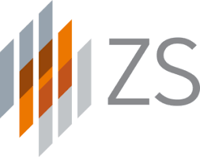Similar Jobs
Artificial Intelligence • Automotive • Computer Vision • Information Technology • Internet of Things • Logistics • Software
The role involves the entire software development lifecycle, including design, coding, testing, and support, while mentoring juniors and improving engineering practices.
Top Skills:
SparkAws Ec2Aws EmrDockerJavaKafkaKubernetesRabbitMQRedis
Artificial Intelligence • Healthtech • Professional Services • Analytics • Consulting
Collaborate on Knowledge Graph development, manage project lifecycles, ensure quality data, and support consulting efforts for various clients.
Top Skills:
AnzoAws NeptuneNeo4JPysparkPythonSQL
Artificial Intelligence • Automotive • Computer Vision • Information Technology • Internet of Things • Logistics • Software
Develop and maintain software products, investigate defects, deploy artifacts, and collaborate in a team environment to deliver solutions.
Top Skills:
AngularjsAWSCSSGitHTMLJava/J2EeJavaScriptJSONJunitMavenMySQLOraclePl/SqlPostgresPythonSpringSubversionUnix/LinuxWeb ServicesXML
We are looking for smart automation QA engineers who will help us verify and validate this large-scale distributed application. As part of the product QA, you will work on the product automation, tools development and setting high benchmarks for the product quality.
This will require a broad top-down understanding of the Tarana Cloud Suite, its components (microservices, UI, databases, etc.), data and control flows between them, runtime infrastructure in the AWS cloud, and network communications with the radio devices. This also means understanding the runtime behaviour of the application, performance implications, infrastructure tuning and capacity management, etc.
Job Responsibilities:
- Understand the Tarana Cloud Suite architecture and gain expertise in all the components involved
- Design, develop and enhance an existing python-based automation framework
- Create UI test scripts using Selenium (or equivalent tools)
- Automate system, scale and performance tests (REST APIs)
- Attend feature design meetings, design comprehensive test plans, create test cases and execute tests
- Review test plans/test code written by other team members
- Own regression test areas and ensure that the product quality is intact despite code churn
- Identify defects and own them through the resolution and verification cycle
- Ensure effective communication of project and testing status to all stakeholders
- Debug problems reported by the customers and reproduce the same in lab environments.
- Own regression test areas and ensure that the product quality is intact despite of code churn
- Contribute to development of tools that enhance test efficiency/management
- Identify defects and own them through the resolution and verification cycle
Required Skills & Experience:
- Bachelor’s/Master's degree in computer science or closely related disciplines
- 2 - 12 years of QA automation experience using Python on microservices-based SaaS products deployed on cloud platforms like AWS, GCP
- Good understanding of Object-Oriented Design methodology
- Experience in functional and system level testing of APIs (familiarity with REST API, JSON, XML) and Frontend (UI)
- Experience of Selenium(or equivalent tools) for UI automation
- Good understanding of QA processes and Agile methodologies
- Exposure to Linux and understanding of Docker containers, VMs etc
- Knowledge of Networking concepts like switching and routing
- Knowledge on ELK (Elasticsearch, Logstash and Kibana), Kafka etc
- Excellent debugging/analytical skills with a focus on solving problems
- Experience of Selenium(or equivalent tools) for UI automation
- Experience with Jira and Confluence
What you need to know about the Pune Tech Scene
Once a far-out concept, AI is now a tangible force reshaping industries and economies worldwide. While its adoption will automate some roles, AI has created more jobs than it has displaced, with an expected 97 million new roles to be created in the coming years. This is especially true in cities like Pune, which is emerging as a hub for companies eager to leverage this technology to develop solutions that simplify and improve lives in sectors such as education, healthcare, finance, e-commerce and more.


